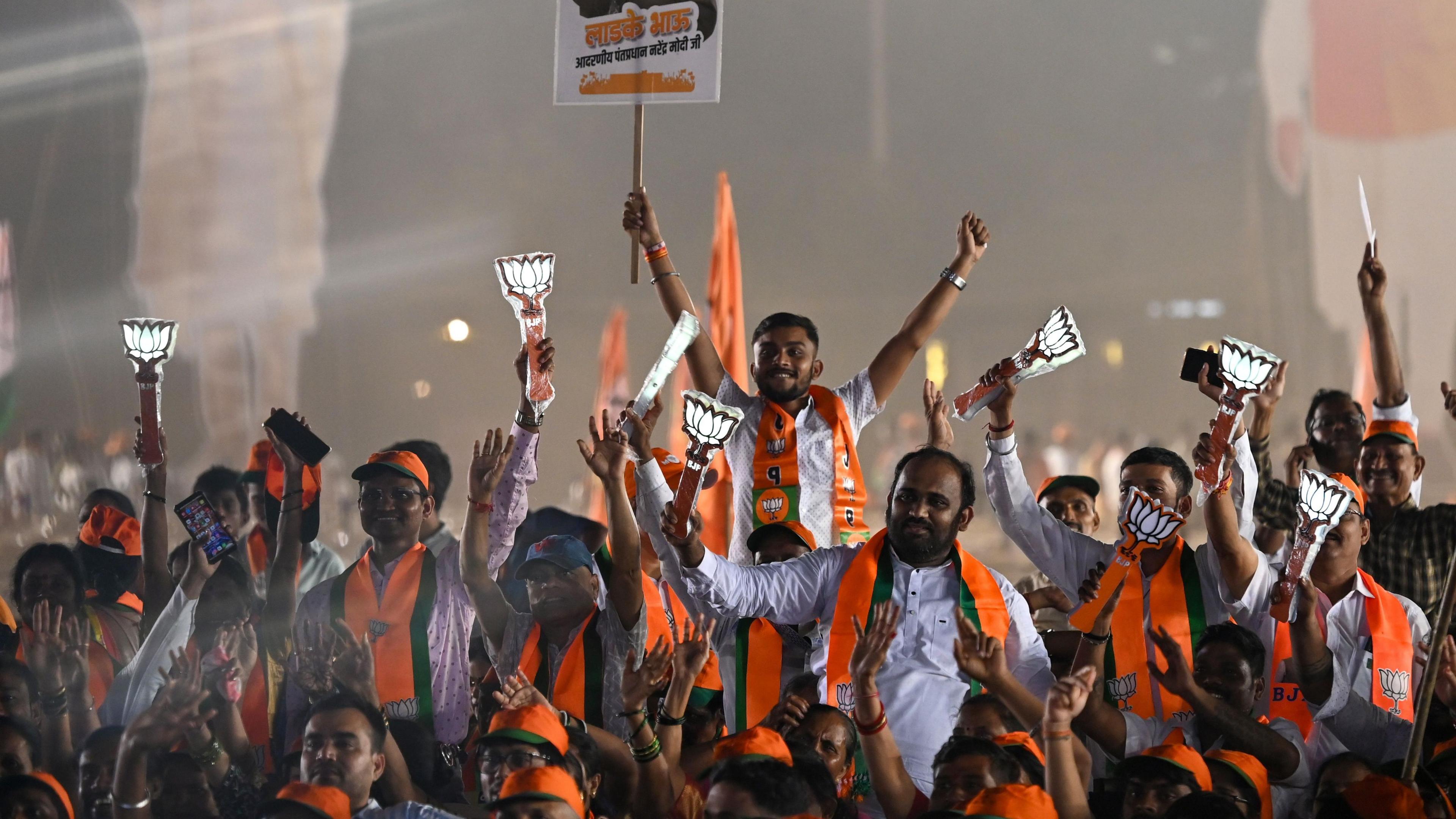Fear grips Indian city after deadly weekend clashes
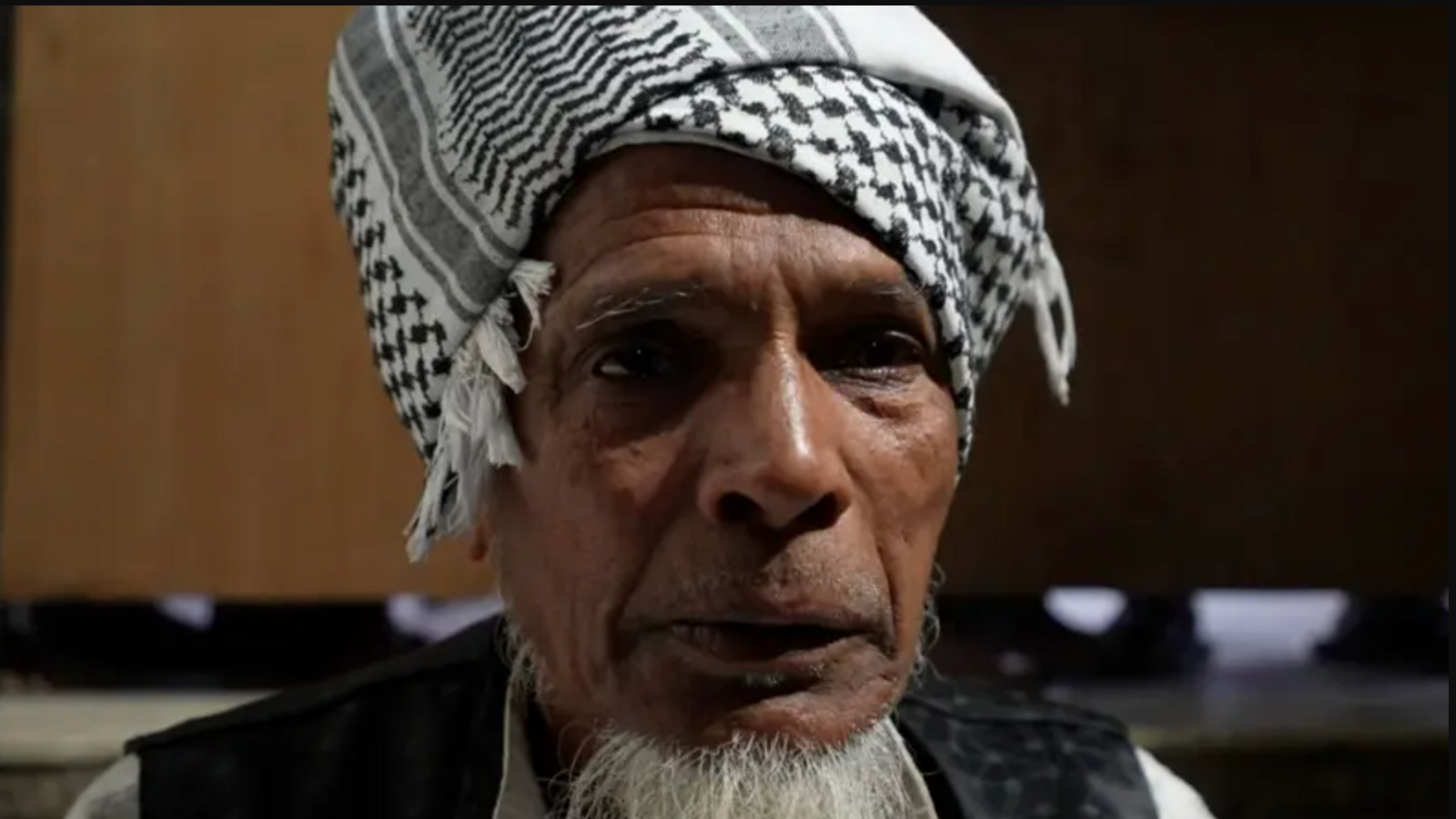
Nafees says his son Bilal who died in Sunday's violence was innocent
- Published
Two days after deadly violence in Sambhal left four people dead and many others injured, the city in India’s northern state of Uttar Pradesh remains gripped by tension.
The violence broke out on Sunday during a court-ordered survey of the centuries-old Shahi Jama Masjid (mosque) that some Hindu groups claim was built at the site of a destroyed temple.
Police said the protesters, most of them Muslims, pelted them with stones and that they fired teargas shells and rubber bullets to disperse the crowds. They said 20 policemen were injured.
But family members of the four Muslim men who died on Sunday alleged that they were shot dead by police - a charge the police have denied.
Officials say the situation is now under control but a large number of police and paramilitaries are deployed around the mosque and the rest of the city.
The streets are eerily silent, littered with stones and dotted with ash marks where vehicles were set on fire.
Local authorities have imposed a ban on entry of outsiders, social activists and politicians to the city until 1 December. Internet services have been suspended and schools have been shut.
Police have registered seven cases in connection with the violence and at least 25 people have been arrested.
On Monday, BBC Hindi met the grief-stricken families of the men killed during the violence.
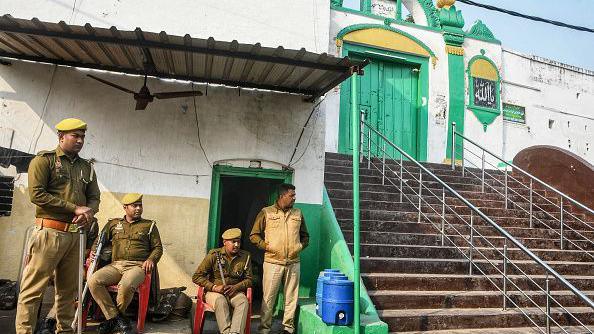
Police officials say the situation in Sambhal is now calm
In the Tabela Kot area, Idro Ghazi continues to grieve inconsolably. Her 34-year-old son, Naeem Ghazi, was among the dead.
Her son, she said, was not a part of the protest and had gone to the market to purchase oil. He was surrounded and shot near the mosque, she alleged.
Despite her grief, the devastated mother has decided not to lodge a case against the police.
“We do not have the courage to fight the police and the government,” she said, her voice heavy with sorrow.
About two kilometres away, in the Baghicha Sarayatrin colony, a silent crowd had gathered outside a mosque. Nafees, who lost his 22-year-old son Bilal in the violence, sat on the steps with his head bowed.
His son, he said, had gone to buy clothes when he was killed. "The police shot him in the chest," he alleged.
The police have denied these allegations. Senior police official Muniraj G told BBC Hindi that the police did not open fire on the crowd during the violence.
The Sambhal police have filed charges against more than 2,700 people - including the local member of parliament Zia-ur-Rehman Barq, who is from the regional opposition Samajwadi Party. They accuse him of provoking the protesters.
Barq strongly denied any involvement and said he was in Bengaluru to attend a meeting at the time of the violence. As evidence, he showed the BBC Hindi team his flight tickets.
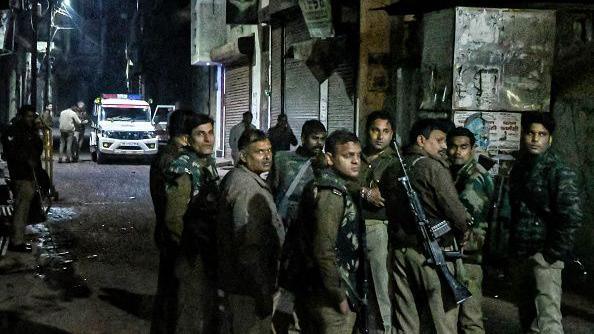
Police have filed charges against more than 2,700 people in connection with the violence
Opposition parties in the state have criticised the state's Hindu nationalist Bharatiya Janata Party (BJP) government for trying to polarise people along religious lines.
A politician from India's main opposition Congress party, Tauqeer Ahmed, said people were so afraid that they were unwilling to even speak out about how the four men had died.
Akhilesh Yadav, former Uttar Pradesh chief minister and leader of Barq's party, accused the state officials of "orchestrating the riot" - a charge they deny.
Speaking to reporters on Monday, Yadav also questioned the urgency of conducting the survey at the mosque.
The controversy surrounding the Shahi Jama Masjid is the latest in a series of disputes involving mosques across India, where Hindu groups have claimed that Muslim rulers destroyed temples to build over them.
Tensions in the city first flared on 19 November, when a local court ordered a survey of the mosque site after a petition claimed that the 16th-century mosque had been built on the ruins of a Hindu temple. Hours after the court order, authorities in Uttar Pradesh began the survey.
Sunday’s survey, which took place five days after the first one, turned violent when a large group of protesters gathered near the mosque and began shouting slogans at the survey team.
Follow BBC News India on Instagram, external, YouTube,, external Twitter, external and Facebook, external.
More on India
- Published25 November 2024
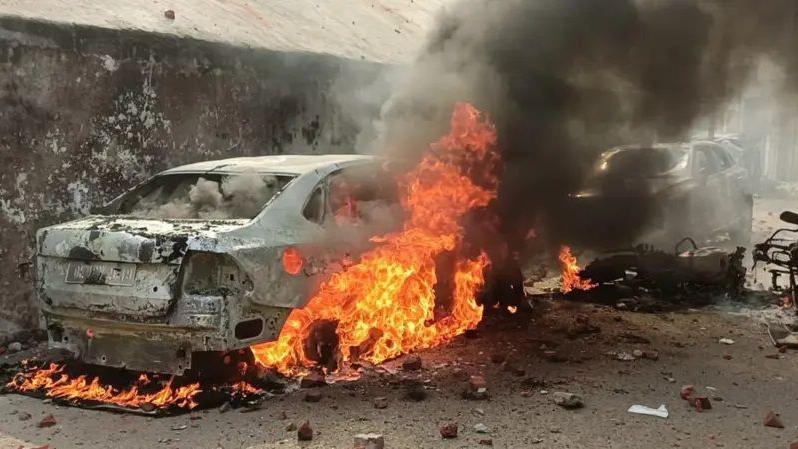
- Published25 November 2024
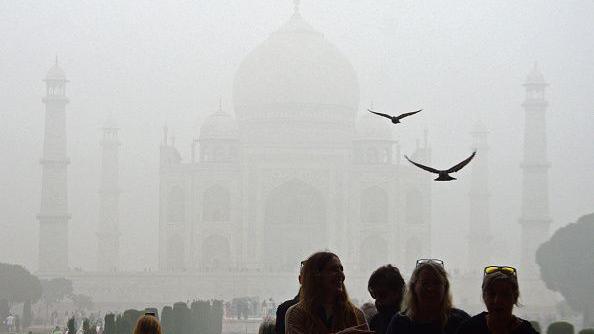
- Published23 November 2024
